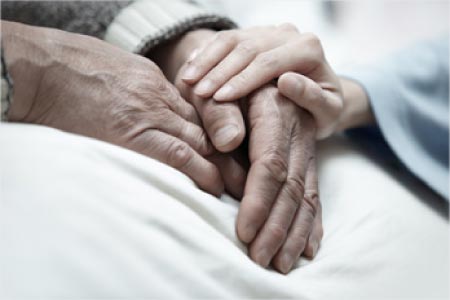Jakob Rumble, who identifies himself as a transgender man, sorts treatment at Fairview Southdale Hospital in June 2013. During his first day in the Emergency Room and subsequent six days in the hospital, he was subjected to numerous forms of mistreatment because of his gender identity. This case is believed to be the first extensive federal court analysis of Section 1557 of the 2010 Affordable Care Act. The provision prohibits discrimination by health care providers and is the first federal civil rights law barring sex discrimination in health care.
According to a 2009 national survey of 4,916 LGBT people (issued by LAMBDA), nearly 21 percent of transgender people said health care professionals used “abusive language”, and 7.8 percent of transgender people said health care professions were “physically rough.” The GLBT patients often face many barriers to equitable care, for example: refusals of care, delayed or substandard care, inequitable policies and practices, end-of-life issues, and limits on visitation. The trials usually begin starting from asking them to identify if they are male or female, married or single, on their intake form.
LGBT people like Rumble say too many healthcare providers are not sensitive to their healthcare needs. Even for basic primary-care services, many LGBT patients say they’re reluctant to visit providers that do not offer services specific to the LGBT population. Consequently, many LGBT people may delay or forgo seeking care to avoid what they fear will be an uncomfortable experience with clinical staff. Mount Sinai Health System in New York City, have recently launched a specialized medical and sensitivity training for healthcare professionals and staff. However, this type of intensive training on LGBT healthcare needs in the hospital setting physicians and other healthcare professionals is rarity.
Healthcare providers are serving more LGBT patients nowadays, but usually they don’t know how to create and implement the policies, procedures, and practices to ensure best patient outcomes. To ensure quality patient care along with diminishing the likelihood of a lawsuit, it’s important for providers to become more knowledgeable and sensitive to LGBT patients because the population suffers from a disproportionate burden of chronic illness.
According to Dr. Harvey Makadon, a Harvard University professor of medicine and director of the National LGBT Health Education Center at the Fenway Institute in Boston, “Most people are not taught even some of the basic communication issues, like learning what someone’s preferred name and pronouns are, not to make assumptions, or not to use pronouns unless you know the right ones to use,”
According to a Kaiser Family Foundation research, LGBT individuals tend to have higher rates than heterosexuals of various chronic conditions such as asthma, hepatitis B and C among lesbian and bisexual women, and a higher prevalence of cancer and cardiovascular disease in gay men. The statistics are worse for transgender individuals, a 2010 study conducted by the National Center for Transgender Equality and the National Gay and Lesbian Task Force found transgender people had an HIV infection rate that was more than four times the rate of the general population, as well as a higher prevalence of behavioral health issues and suicide.
Dr. Barbara Warren, who is recognized as a leader in the field of addressing LGBT people’s health needs and has overseen the LGBT health services program at Mount Sinai in New York City said, “It is not just about being nice to the gay people, there are special healthcare sensitivities and needs that folks who interact with patients want to be aware of.”
Biggest Mistakes Providers Make In Dealing with LGBT Patients
- Making assumptions, or not askingabout sexual orientation and/or gender identity
- Not asking personal questions about a patient’s sex life and./or activities that carry a health risk
- Referring to a transgender personby the wrong pronoun
- Not acknowledginga transgender patient’s gender preference
- Asking questions in a judgmental tone
- Not providingrequested medical information to same-sex spouses
- Not respecting the rightof same-sex spouses to make medical decisions if the patient is incapacitated
Even though there have been advances by some providers in addressing LGBT health needs, hospitals and physicians lack adequate data to determine best clinical practices. According to Warren, historically, information on sexual orientation or gender identity was not collected. To counter that, Mount Sinai is planning a pilot program that will include a patient’s sexual orientation and gender identity within their electronic health record, joining several other providers such as University of California at Davis Health System and Partners HealthCare in Massachusetts.
ProfEdOnDemand is hosting a LIVE webinar with expert speaker, Dr. Susan Strauss, RN, Ed.D., a consultant in discrimination and harassment of protected classes, including the GLBTQ community, on how to create policies ensuring quality care of LGBT patients in hospitals. In this session “Care of the GLBTQ Patient and Their Families: Policies, Procedures, Practices & Laws” you will get to learn strategic LGBT initiatives to minimize liability based on civil rights laws and the ACA.
Source: Modern Healthcare



